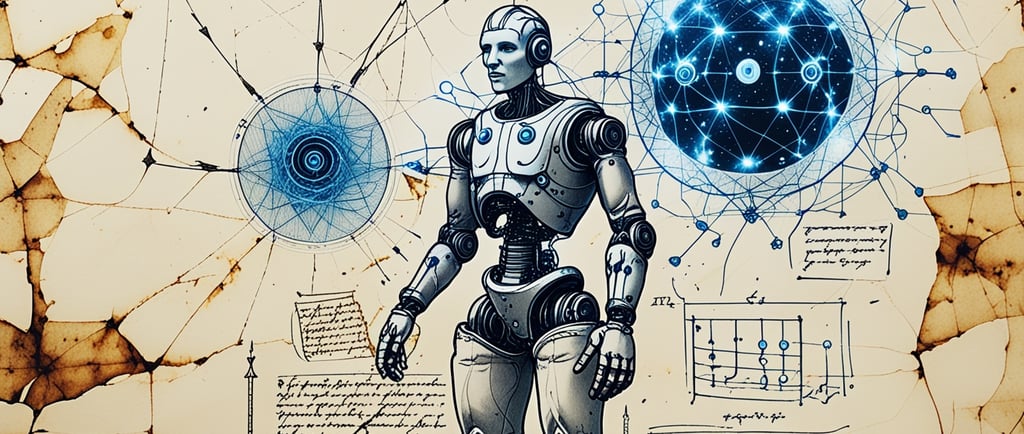The Future of Blogging in the Age of AI: Can Bloggers Survive AI-Based Search?
AI search tools like ChatGPT, Grok, and Perplexity are changing how we find information, but at what cost to bloggers? As AI summarizes human-written reviews, bloggers risk losing traffic and affiliate income. What does this mean for the future of blogging?
Odeta Ise
3/11/20253 min read


A few weeks ago, I was searching for the best podcasting tools for my podcast. As with everything now, instead of heading straight to Google, I turned to ChatGPT, Grok, and Perplexity, my go-to trio if I need to research or search for something. Within seconds, they provided a list of top-rated tools with descriptions, summaries of why users love each tool, the starting price, and other details. Yet, as I read through the AI-generated responses, it was clear that AIs draw their insights from bloggers' in-depth reviews.
This raised an important question: What happens to the blogging industry if more people rely on AI search tools instead of finding tools via blog posts directly?
Blogging and the Affiliate Income Model
For years, bloggers have monetized their content primarily through affiliate marketing. They review software, tools, and products, embedding affiliate links that generate commissions when readers make a purchase. For example, successful bloggers in tech and software niches can earn anywhere from $5,000 to $50,000+ per month through affiliate links. According to industry data, the overall bloggers' income is split as follows:
Affiliate marketing accounts for about 40% to 80% of many bloggers’ income.
Advertising revenue like display ads, sponsored posts, and YouTube ads contributes another 20% to 40%.
Other revenue streams like courses, memberships, consulting, donations, and similar make up the rest.
However, if AI search tools become the go-to platforms for recommendations, the bloggers may see a significant decline in traffic and income. Less traffic means fewer clicks on affiliate links and, ultimately, lower earnings.
The Domino Effect: AI’s Growing Dependence on Human-Generated Reviews
The problem doesn’t stop at lost blogger revenue. If fewer bloggers publish in-depth reviews due to declining income, AI models will have less quality data to pull from. Currently, AI tools don’t actually test products as they rely on human-created content for insights. If that content diminishes, AI search results could become less reliable, leading to:
Recycling of outdated information: AI will keep surfacing the same old content, potentially making its recommendations obsolete.
A lack of real-world testing: AI cannot (yet) sign up for software, test features, or create content like a human reviewer. Plus, it's a question if humans could ever trust AI's reviews of tools for humans. Maybe some day, but who wants that?
Increased reliance on paid promotions: Companies might start paying AI models for favorable placement in responses, reducing trust in AI-generated recommendations and AI in general.
What’s Next? Possible Futures for Blogging and AI Search
While the disruption is clear, there are a few potential scenarios for how this plays out:
Scenario 1: AI and Bloggers Find a Middle Ground
AI search tools could start attributing and linking back to original sources, sending traffic to bloggers instead of just extracting their insights. Platforms like Perplexity already experiment with citations, but the challenge is ensuring fairness in traffic distribution. After all, who will know that a person subscribed to a tool because Perplexity showed a specific blog post by a specific blogger unless the blogger's affiliate link is inserted.
Scenario 2: Bloggers Shift to New Monetization Models
If affiliate earnings decline, bloggers may pivot to subscription models, paid communities, or premium content. Think Patreon-style memberships, exclusive research reports, or AI-assisted content that adds value beyond what free AI search tools can offer.
Scenario 3: AI Agents Conduct Their Own Product Reviews
In the long run, AI agents could evolve to actually test products, sign up for tools, and generate hands-on insights. This would require more advanced autonomous agents capable of real-world interactions, a development that could reshape the landscape of online recommendations altogether.
Scenario 4: Search Engines Adapt and Reward Human Content More
Google and other search engines could tweak algorithms to prioritize human-generated content, giving preference to expert-authored reviews over AI-rewritten summaries.
Final Thoughts: The Need for an AI Transformation Strategy
For bloggers and content creators, the shift toward AI-driven search is both a challenge and an opportunity. The key to survival will be adapting to the new landscape - whether that means doubling down on expertise-driven content, finding new monetization avenues, or leveraging AI tools to enhance their own content production.
As businesses and individuals navigate this transformation, understanding the AI implementation roadmap and investing in AI skills training will be crucial. Just like the blogging industry, every sector must rethink its approach to content, value creation, and digital presence in an AI-driven world.
What do you think? Will blogging thrive in the AI age, or is it heading toward obsolescence?
AI is changing the world FAST. Are you changing with it?
© 2025. ChangeAI, all rights reserved.


